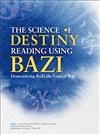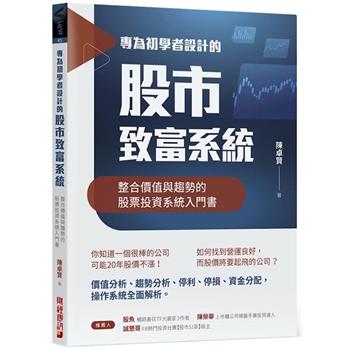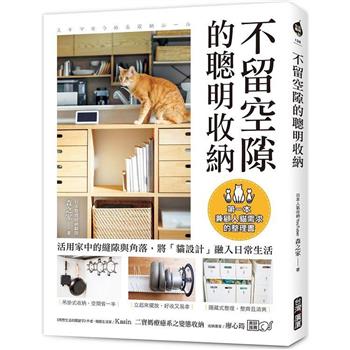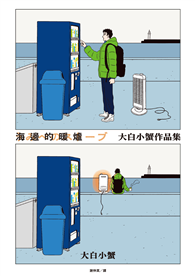★★★佳評如潮的《科學斷八字》推出英文版囉!★★★
八字命理其實是科學的!
本書是由工程博士黃冠寰教授所作,
作者從科學教育的基礎,
盼為八字命理奠定下科學思維!
八字命理是科學的,是確確實實可掌握在手中的生活法則。
本書的科學命理.能幫助您破除迷信,
解決人生的疑惑.讓您的人生順遂!
作者為清華大學工程博士,曾發表過國際級會議論文及SCI英文期刊論文數十篇,近年並連續數年榮登Marquis世界名人錄,這樣一位擁有邏輯思維的專業科學家要告訴你:八字命理其實是科學的!
如何科學?以做研究的態度學習命理,遍覽群書,剔除傳統命理邏輯不通、論述不對之處。最後以木火土金水及陰陽五行相生剋合為中心思想,建構出一套完整有系統的論證法,依此法再廣為蒐集案例,持續追蹤命主動向,來回印證,並根據許多為別人論命的經驗,終於寫成《科學斷八字》一書。
由於現今世界局勢與自然環境變遷越來越快,各項社會制度與價值觀也面臨重大轉型,生活不再單純穩定,人心惶惶,我們都更需要一種可確確實實掌握在手中的生活法則,以安浮動之心。而八字命理是中國千年傳承下來的知命技術,可幫助人了解自己生命中「天生」的部分,正是一份不會隨著外在環境而變的指南,包含我們的優勢、缺點、特質、人際關係等,以及中國獨有的人生智慧。
使用本書科學論證法解析出屬於自己的人生指南,配合自然節氣變化作出因應,便能讓我們於開創自己「後天」的路上不致迷失,進而人生順遂,臻於圓滿。
★★★各卷摘要
【卷之一/卷之二】讀者先閱讀一些案例,首先了解八字命理的論命法可以如何幫助我們,以決定是否要使用命理學來解決生命中的疑惑及幫助改善自身生活。另一方面立志學習及研究命理的朋友,可以了解八字論命能達到多少的成效,進而有正確的學習方向。
【卷之三】研讀一些八字命理的基礎,如五行、天干地支、節氣、十神等。
【卷之四】讀者能以八字命理的基礎理論,根據命局中五行交互作用的關係,判斷出一個人的個性、特質、學業及學運、適合行業、身體及疾病注意事項等。
【卷之五】根據大運、流年、流月、流日的進氣,來判斷人生不同時期的命運,進而能依進氣的變化來趨吉避凶。
【卷之六】讀完前五卷,讀者已對八字論命有基本的認識,〈卷之六〉將介紹如何進一步加深八字論命的功力,是有志為他人論命者必須知道的內容。
【卷之七】特別針對一些錯誤的八字論命法或觀點,加以討論。
【卷之八】與讀者分享,幫人論命時要注意的事項和該有的心理準備。
Bazi is the powerful and ancient art of destiny reading used by the Chinese for many centuries. Let Dr. Hwang unveil the mystery of Chinese fortune telling through an analytical and logical approach. Readers who are patient enough to read the book in its entirety will not only be rewarded with the tools and ability to unlock their future, but also fulfil their life’s potential. This book is not only for those who are interested in understanding Chinese metaphysics, but also for anyone who would like to clear up any doubts or misunderstandings about this wonderful art of destiny reading.
Study BaZi, the most popular Chinese art of fortune telling, in an entirely new and easy way! Forget about the myths and superstitions that have surrounded it for centuries. Let Dr. Hwang lead you to unveil the mysterious art of BaZi with a logical and analytical perspective.
Dr. Gwan-Hwan Hwang, Ph.D., is a professor of Engineering at Tsing-Hua University in Taiwan, with dozens of papers published in global engineering conventions and SCI journals. His name is also listed in Marquis Who’s Who. With this background, Dr. Hwang studied BaZi for years with the same scientific discipline as he has done in the academic field of engineering.
With a logical and scientific approach, he was able to decipher the ancient art of destiny readings, dusting off the misconceptions and superstitions that have been misleading practitioners and the general public alike for generations, and restoring BaZi to its original beauty.
Dr. Hwang further strengthened his theory by verifying it with thousands of real-life cases, many of which he has been tracking for years. This book summarizes the best of his findings as well as the most representative cases he has gathered so far. Unlike other books about fortune telling, which almost always resort to divine power or myths that cannot be explained with logic, Dr. Hwang illustrates everything about the art of BaZi in a logical and systematic way, making everything easy to understand. Readers shall be able to quickly grasp the concepts and theory behind BaZi, and apply it in their day-to-day lives.
In this book, Dr. Hwang summarizes the principles of BaZi in a systematic way. Readers will be able to quickly understand the system and logic behind BaZi, and start applying it in their daily lives.
In the modern era, where uncertainty has become the norm, a tool that helps people better understand and guide themselves through different situations is more valuable than ever. The art of BaZi, in the hands of those who truly understand it, is like a compass. It not only helps reveal one’s personalities, strengths, and weaknesses, but it also guides one through life’s vicissitudes. Mastering BaZi helps us to better know who we are, manage our lives, and create our own destinies.











